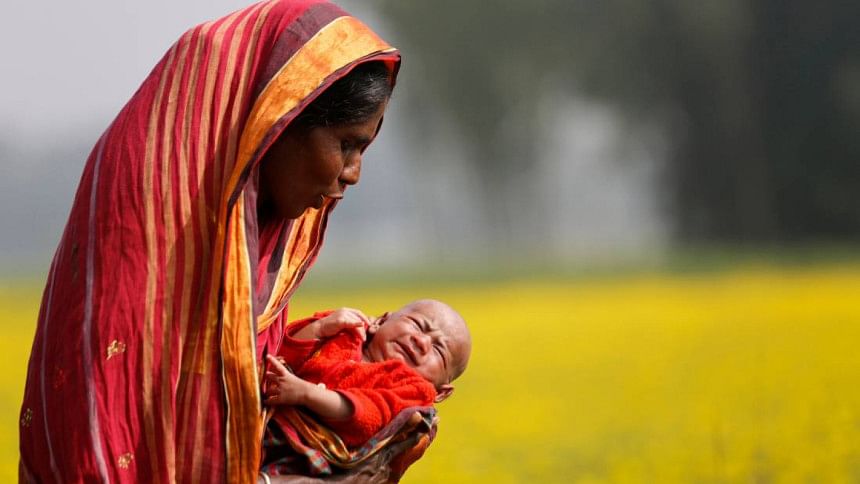We need more breastfeeding corners

World Breastfeeding Week is observed annually, from August 1 to 7, in more than 120 countries. In 2021, Bangladesh ranked first out of 98 countries in supporting lactating women, according to a report by the World Breastfeeding Trends Initiative. But despite at least 42.68 percent of women in Bangladesh being in the workforce, not all workplaces and public places have breastfeeding facilities.
According to Section 94(7) of the Bangladesh Labour Act, 2006, "Such rooms shall be adequately furnished and equipped and in particular there shall be one suitable cot or cradle with necessary bedding for each child, at least one chair or equivalent seating accommodation for the use of each mother while she is feeding or attending to her child and a sufficient supply of suitable toys for the older children."
In October 2019, lawyer and mother Israt Hasan filed a writ petition with the High Court seeking the establishment of breastfeeding corners in public spaces. As a result, the HC in April this year directed the government to take necessary steps to set up breastfeeding corners at all workplaces, shopping malls, airports, bus stops, and railway stations across the country.
Breastfeeding laws exist in the United States and the United Kingdom. Both countries feature designated diaper-changing areas as well as breastfeeding corners with accompanying bathrooms. It is also entirely legal for mothers to breastfeed in public spaces anywhere in the UK and US. The matter is also under consideration in neighbouring India. Back in 2017, nursing rooms were established at 100 railway stations across the country in India.
In Bangladesh, many public places feature dedicated smoking zones. But there are hardly any breastfeeding and baby care corners. This is quite discriminatory. Moreover, although more and more women are entering the workforce and contributing to the country's economy, we are lagging behind in taking steps to improve their working conditions. This includes the lack of breastfeeding corners in workplaces, which can also impact the growth and overall health of the babies of working mothers.
Working women spend lengthy periods of time outside with their children. Due to a lack of dedicated breastfeeding corners, mothers are forced to delay feeding their babies, resulting in a variety of physical and mental issues for the children. Regular breastfeeding boosts a child's immune system, aids the mother in overcoming postpartum exhaustion, and even reduces the risk of various diseases such as uterine cancer and breast cancer. Above all, there is no substitute for a mother's milk when it comes to the complete development of a baby.
Despite existing laws, there is very little state or institutional initiative in terms of establishing breastfeeding and childcare spaces in both public and private establishments of our country. This needs to change. Breastfeeding corners are necessary to not only keep women in the workforce but also to provide for the nutritional needs of the next generation.
Sabrina Pervin Shanta
Student, North South University

 For all latest news, follow The Daily Star's Google News channel.
For all latest news, follow The Daily Star's Google News channel. 





Comments